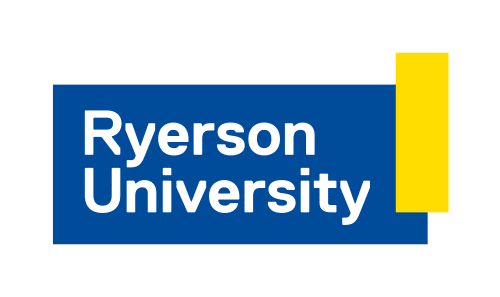Post Study Work Permit
Turn your degree into a global career with post-study work opportunities.
What is Post Study Work Permit?
A Post-Study Work Permit (PSWP) is a visa or legal authorization that allows international students to remain in the country where they completed their education and gain valuable work experience. This permit bridges the gap between academic life and professional employment, offering graduates the opportunity to build their careers, earn income, and apply their skills in real-world settings. Available in many top study destinations such as Canada, the UK, Australia, New Zealand, Germany, and others, the post-study work visa typically ranges from 1 to 3 years depending on the country and the level of qualification obtained. It also serves as a stepping stone toward permanent residency in many countries, making it an essential consideration for students who wish to transition from temporary student status to long-term settlement. The PSWP not only enhances employability but also allows graduates to expand their professional network, explore new industries, and gain international exposure, all while legally living and working abroad.
Benefits of Post Study Work Permit

Top Countries Offering
Post-Study Work Permits (2025)
Looking to stay and work abroad after graduation? These countries offer the most flexible post-study work options for international students.
Your Guide to Post-Study Work Permit
A Post-Study Work Permit is your gateway to staying and working abroad after graduation. Designed for international students, this permit allows you to gain hands-on experience in your field of study, earn a salary, and begin building a professional life in the country where you studied. Whether you’re aiming to enhance your CV, secure long-term residency, or transition into a full-time career, post-study work rights provide the perfect platform. In this guide, we’ll walk you through everything you need to know—eligibility, country-specific rules, visa durations, documentation, and tips to maximize your opportunity after completing your studies.

How to Apply for a Post-Study Work Permit (Step-by-Step)
Applying for a Post-Study Work Permit (PSWP) is a crucial step for international students who wish to stay and work after graduation. While the process may vary slightly by country, the general steps remain similar across popular destinations like Canada, the UK, Australia, New Zealand, and Germany. Here’s a complete step-by-step guide:
Degree certificate or completion letter
Academic transcripts
Valid passport
Copy of your student visa
Proof of English language proficiency (if required)
Health insurance documentation
Passport-size photographs
Medical report or chest X-ray (some countries like New Zealand require this)
Police clearance certificate (if applicable)
Examples:
Canada: IRCC portal
UK: Home Office Graduate Route
Australia: ImmiAccount (Subclass 485)
New Zealand: Immigration NZ portal
UK: £822 + Immigration Health Surcharge
Canada: CAD $255
Australia: AUD $1,895 (Subclass 485)
New Zealand: NZD $700–$800
Germany: Approx. €100
Always check the latest fee updates on the official immigration website.
Countries like Australia, Canada, and New Zealand require post-arrival or pre-approval medical exams, especially for applicants from high-risk countries.
Canada: 4–8 weeks
UK: 8 weeks
Australia: 2–4 months
New Zealand: 3–5 weeks
Germany: 4–6 weeks
Track your application status online if available.
Need Help?
Apply Now!
Post-Study Work Permit – A Complete Guide for International Students (2025–2026)
A Post-Study Work Permit (PSWP) is a special visa or residence status that allows international students to stay and work in the country after completing their studies. Whether you’re planning to study in Canada, the UK, Australia, New Zealand, Germany, or the UAE, understanding the rules, benefits, and application process of a post-study work permit is critical to building a global career.
This guide covers everything you need to know about post-study work rights, including country-specific policies, eligibility, required documents, and how to apply.
What Is a Post-Study Work Permit?
A Post-Study Work Permit allows international graduates to legally remain in the country where they studied to gain practical work experience. This work authorization is usually valid for 1 to 3 years and, in many countries, can lead to permanent residency or a skilled migration visa.
Benefits of a Post-Study Work Permit
A Post-Study Work Permit (PSWP) offers far more than just the ability to remain in the country after graduation—it opens the door to a world of professional and personal opportunities for international students. Here’s a detailed look at how this permit can shape your future:
1. Gain International Work Experience
One of the most significant advantages of a PSWP is the opportunity to apply your academic knowledge in a real-world, global environment. Employers value international experience, and working in the country where you studied gives you the chance to build a competitive CV that stands out.
2. Pathway to Permanent Residency (PR)
Many countries align their post-study work programs with long-term immigration goals. Work experience gained during the post-study period often counts toward eligibility for permanent residency or skilled migration programs, making it a critical first step toward settling abroad permanently.
3. Transition from Student to Skilled Professional
A PSWP bridges the gap between graduation and full-time employment. It allows you to legally work while you explore different industries, build networks, and identify the right career path—without the pressure of immediately leaving the country.
4. Financial Independence
Working after your studies enables you to start earning, manage your living expenses, and repay any student loans. It also helps you save and plan for future education, investments, or relocation costs.
5. Expand Your Professional Network
Living and working in a multicultural, global business environment gives you access to industry leaders, mentors, and international peers. These connections can lead to job offers, partnerships, or long-term career growth.
6. Cultural and Career Integration
By working within the host country, you gain a deeper understanding of its workplace culture, communication styles, and expectations—valuable skills if you choose to stay long-term or work with global teams in the future.
7. Flexibility and Freedom
Most post-study work permits allow full-time employment in any field, giving graduates the flexibility to explore different roles and sectors—even those outside their initial field of study.
8. Enhance Your Immigration Profile
In countries like Canada, Australia, and New Zealand, work experience gained under a PSWP significantly improves your immigration score, increasing your chances of qualifying for PR and citizenship.
9. Personal Growth and Global Perspective
Beyond the professional benefits, living and working abroad builds independence, resilience, and cross-cultural communication skills—traits that are increasingly valued in the global workforce.
10. Open Doors to Global Opportunities
A post-study work permit allows you to launch your career on an international stage, with many graduates receiving job offers that lead to permanent roles, international transfers, or even future study sponsorships.
Documents Required for Post-Study Work Visa Application
- Valid passport
- Graduation certificate or transcript
- Proof of completion from university/institution
- English language test (if required)
- Recent photographs
- Health insurance proof
- Financial proof (if applicable)
- Police clearance certificate (in some cases)
Tips for Success After Receiving a PSWP
- Start job hunting before graduation
- Attend career fairs, networking events, and internships
- Use university career services
- Apply for jobs aligned with PR eligibility (if applicable)
- Maintain legal visa status and renew work authorization if needed
Pathway to Permanent Residency (PR) After Post-Study Work
Many countries use post-study work experience as a stepping stone to permanent residency:
| Country | PR Pathway |
|---|---|
| Canada | Express Entry, Provincial Nominee |
| UK | Skilled Worker Visa, ILR |
| Australia | General Skilled Migration |
| New Zealand | Skilled Migrant Category |
| Germany | EU Blue Card, German PR |
| Ireland | Critical Skills Employment Permit |
| UAE | Golden Visa for high achievers |
How Brightlink Education Can Help You
At Brightlink Education, we guide students through every stage of their study-to-residency journey:
- University & course selection with PSWP benefits
- Country comparison based on career goals
- Full visa documentation & filing
- Post-study work permit consultation
- PR eligibility planning & application guidance
- Ongoing support even after graduation
Start Your Global Career Today
Planning your education abroad? Choose a destination that not only gives you a world-class degree but also opens doors to global employment.
Contact Brightlink Education today for a consultation on study and post-study work options in Canada, UK, Australia, New Zealand, Germany, UAE, and more.
Why Choose Us?

Frequently Asked Questions – Post-Study Work Permit
Our Partner Universities
Start Your Global Journey Today!
Your dream of studying abroad starts here! Whether you’re aiming for top universities in the UK, USA, Canada, Australia, or Europe — we’re here to guide you every step of the way. From choosing the right course and university to visa assistance and pre-departure support, our experienced consultants have got you covered.
👉 Book Your Consultation Now
Let’s turn your study abroad dream into reality!












